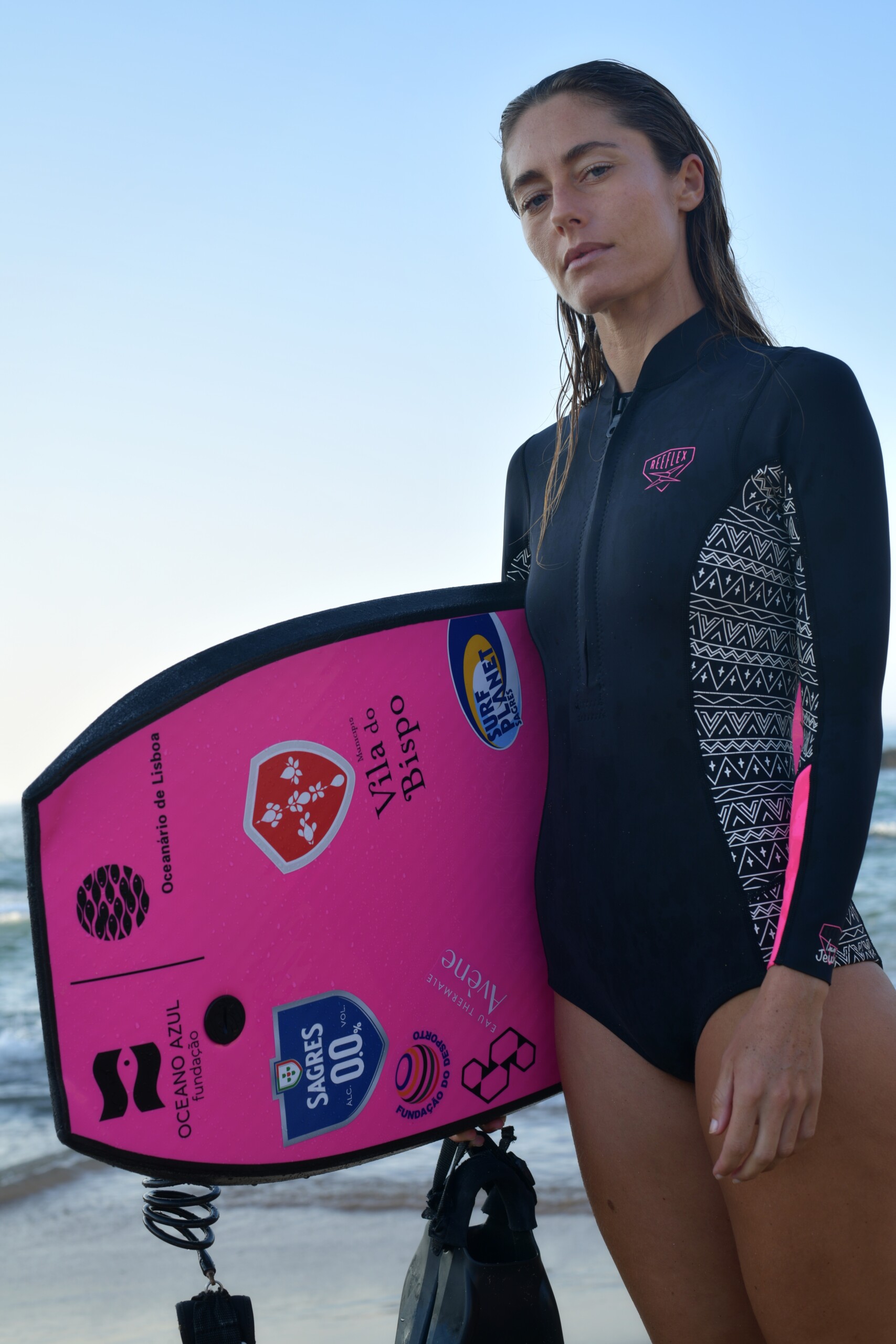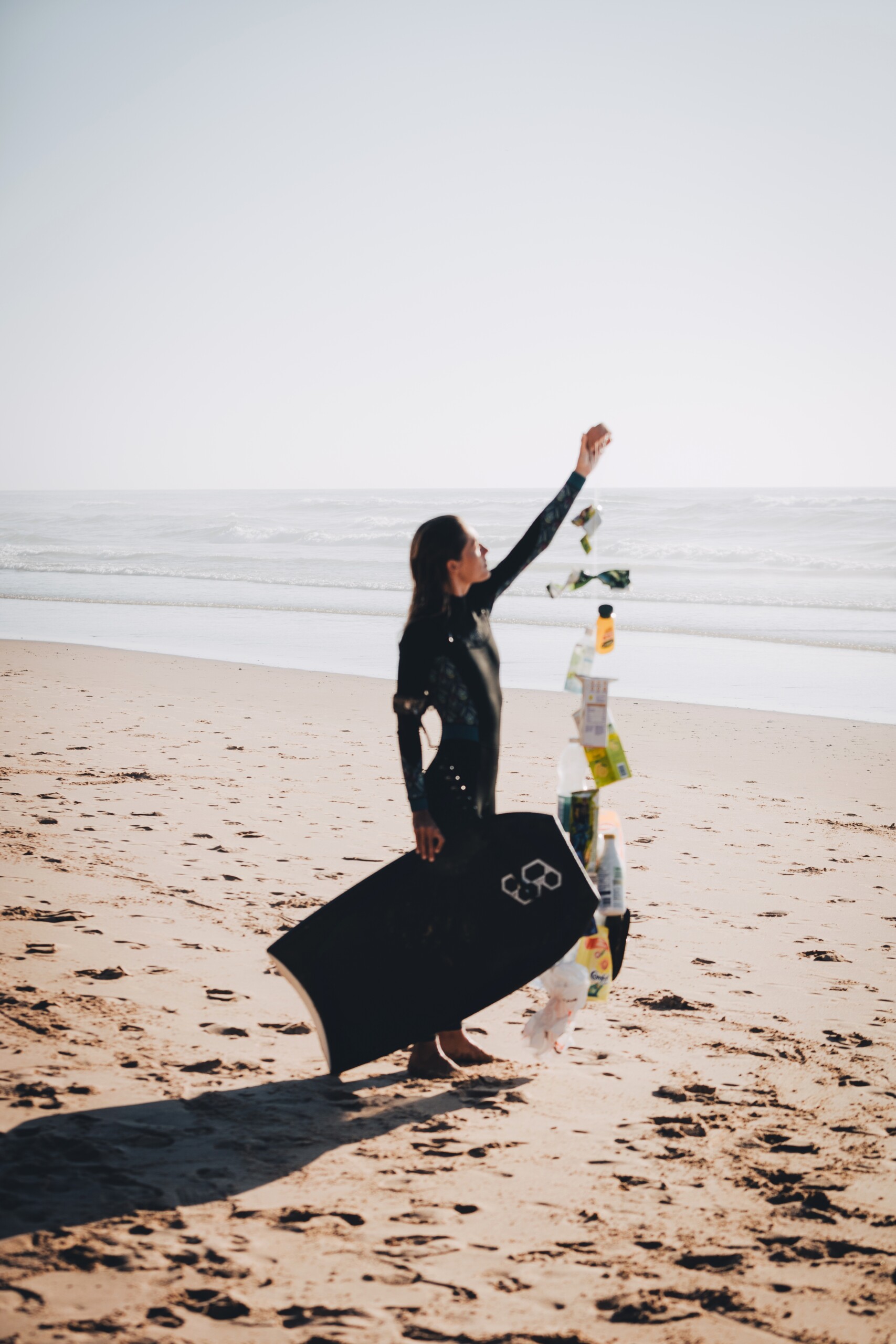
How did bodyboarding come into your life and where does this enormous passion for the sea come from?
The sea has always been a part of my life. Ever since I was a child, I remember spending a lot of time on the beach playing in the waves. I later discovered bodyboarding at the age of 13 with my school friends and I've never stopped. Sagres and the whole Vila do Bispo area have a long tradition of this sport and it was quite natural to start practicing it too. The bodyboard opened a new door for me to enjoy the sea and the waves in a more intense way.
A passion that turns out to be a little more than that, as she is a tireless activist in defense of the oceans. Do you think it's important for well-known personalities, such as sportspeople or artists, to take a more active role in defending the causes they believe in?
I think it's fundamental, I feel responsible for the ocean and I want to try to give back a little of everything it has given me. I believe that the main role of a professional athlete is to inspire others, especially young people, and we should use our voice to make a positive and active contribution to society. My cause is the sea, because I owe it everything I am today.

Joana Schenker, 35, started bodyboarding at the age of 13, in Vila do Bispo, and was the first Portuguese woman to become a world champion in this sport Photo: Francisco Pinheiro
What are the main problems we face in terms of maritime pollution and how can we reverse them, if there is still time to do so?
There's always time to do better! All our daily actions have direct consequences for the health of the ocean. I always say that protecting the sea starts at home! Reduce single-use plastic, opt for less packaging and reusable packaging such as returnable bottles, never flush plastic such as cotton buds down the toilet. Wearing certified "coral-friendly" sunscreen, picking up litter on the beach even if it's not ours... Small actions that go a long way when many people do them. The fishing industry also has a huge impact on ocean health, in fact the issue of overfishing is urgent and even much of the marine litter is derived from the fishing industry. Prefer selectively caught and artisanal fish, pay close attention to labels when buying frozen fish (where it comes from, how it was caught, etc...), reduce the consumption of fish and shellfish in general.
Is that why you created the Schenker School Tour, a joint initiative with the Oceanário de Lisboa and the Oceano Azul Foundation, more aimed at the younger generations? What specifically does this project consist of and what response has it had from the younger generation?
The "Schenker School Tour" was an initiative launched by Oceanário de Lisboa and the Oceano Azul Foundation. Basically, they challenged me to share my experience as a professional athlete linked to ocean literacy with young people in Portuguese schools. The main aim of my talk is to motivate and inspire a proactive attitude towards protecting the sea. I've given more than a hundred talks and more than 12700 students have attended from the north to the south of Portugal. It's free and interested schools can register on my website at joanaschenker.com.

He has given over a hundred lectures to more than 12700 students from the north to the south of Portugal Photo: Francisco Pinheiro
As a practitioner and professional of a sport that is still seen as masculine, how do you see the fight for gender equality within top-level sport? Is it a cause you've also embraced?
It's a cause that's impossible to ignore as an athlete in a sport that is still mostly male. The truth is that we're slowly moving in the right direction, but we're still a long way from equality, from the much lower prize money, to the conditions of the waves in which we compete, to media exposure or access to sponsorship. It's important to involve all aspects of the sport on the road to equality, organizations, fans, athletes, etc?
When you leave the competition, is activism to continue?
I was born an activist and one day, when I leave the competition, I'll have even more time to devote to the causes close to my heart!


